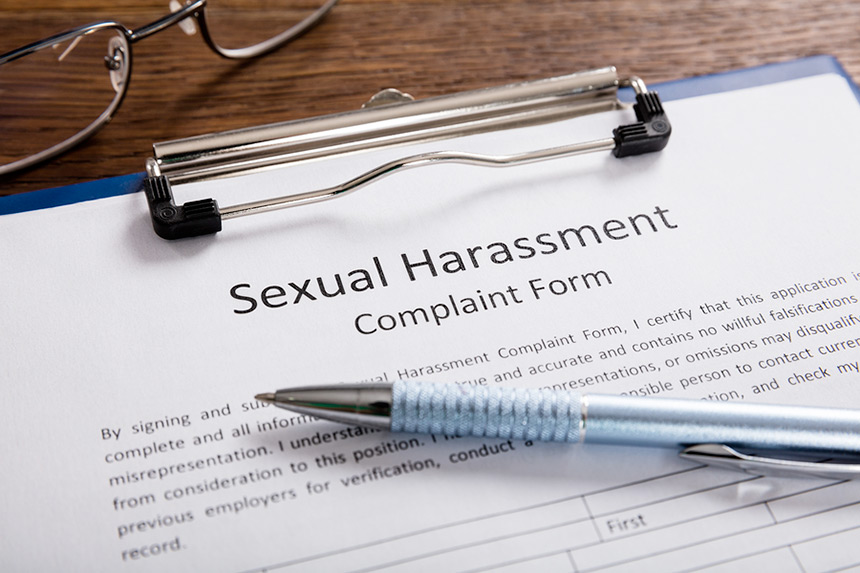As Australia becomes more sensitive to sexual harassment issues in the workplace, managers may be obliged to become more accountable for behaviours that occur under their watch. Sexual harassment in the workplace refers to unwanted sexual attentions that could be physical, verbal, written, electronic or emotional. Men and women are both vulnerable to sexual harassment although there are higher numbers of instances where women tend to be the victims. According to reports published by the Australian Human Rights Commission, one in every five women has experienced sexual harassment in the workplace. Authorities suspect that the number of instances may be even higher taking into consideration unreported cases. Sexual harassment often makes the targeted individual feel intimidated, offended and degraded.
Sexual harassment behaviours may commonly include unwanted touching, hugging, conversations with sexual innuendos or sexually suggestive jokes and remarks. Similarly, sexually suggestive screen savers, text or email messaging can also be perceived as harassment. Other signs may include too many personal remarks regarding appearance and persistent requests to meet outside of work. In fact, a major proportion of sexual harassment behaviours are subtle rather than explicit; this makes it more difficult to identify and catch perpetuators. Moreover, sexual harassment may occur in the workplace, at work-related events outside the workplace or even in the cafeteria or common areas.
It’s important to understand that sexual harassment behaviours do not include friendships or flirtations. It refers to forced interactions that happen without mutual consent. Sexual harassment can include events that are one-off or repeated and even a single instance of harassment can be identified as sexually threatening behaviour. According to the Australian Equal Opportunities Act, sexual harassment is punishable under law. Employers are required to adopt and implement stringent and consistent policies and must ensure compliance by their employees.
The sad reality in many workplaces is that high-performing workers are often allowed to get away with more than what you’d tolerate in others. Many times, victims are silent due to fear of job loss (which in turn implies loss of income). Condoning sexual harassment or ignoring the repercussions will only undermine the high brand image that you’re trying to create and send out the wrong message. It pays to understand that it’s never alright for your employees to feel belittled or compromised especially as they need to go to work each day to earn their living.
Managers are becoming increasingly aware of the need to keep a wary watch on workplace interactions in order to ensure employee safety and wellbeing. As Australian employers, you are expected to provide a safe and non-threatening environment for your employees. The problem often lies in investigating the incident(s) in a fair and thorough manner. Victims do not always make a formal complaint or objection due to embarrassment or fear of repercussions. However, this does not mean that they consent to the behaviour. Regardless of the absence of formal complaints, managers must consider getting suspected incidents investigated by professionals. They must take proactive steps to prevent sexually inappropriate behaviours in the workplace.
It requires dedicated time and effort to get to the root of the matter and ascertain the truth before taking action. Although many sexual harassment claims are genuine, there are instances where the claim could arise from wrong perceptions etc. Such incidents warrant detailed investigations before making decisions.
ESN is pleased to offer reliable and confidential HR consulting, training and investigative services for your requirement. We understand that managers may not have the knowledge or training to ascertain the truth in sexual harassment cases. Our experienced, trained consultants and licensed private investigators will be happy to implement fair practices and recommend suitable solutions with regard to incidents of sexual harassment. Please feel free to contact us for further details regarding our specialised range of services.
References:
https://www.humanrights.gov.au/publications/sexual-harassment-workplace-legal-definition-sexual-harassment
https://www.humanrights.gov.au/employers/good-practice-good-business-factsheets/workplace-discrimination-harassment-and-bullying
https://www.humanrights.gov.au/





